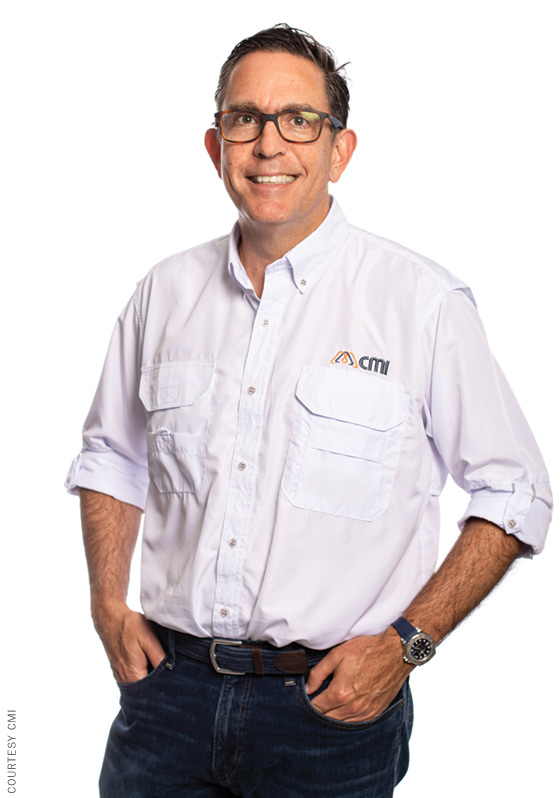
The CEO of one of the largest food companies in Latin America is trying to expand across several US cities.
For a management professional known as a turnaround specialist, José Gregorio Baquero WG’94 has shown a remarkable propensity for letting his own well-planned career strategies fall apart. Yet it’s always seemed to work out for him in the end.
Today Baquero runs the food division of Corporación Multi Inversiones (CMI), a Guatemala-based company that ranks among the top ten food conglomerates in Latin America.
It is not a job he expected to have when he began studying industrial engineering in his native Venezuela in the 1980s and plotting a path toward PDVSA, Venezuela’s large national petroleum company. “It was the dream of every Venezuelan engineer to work for PDVSA,” the 59-year-old says.
But when that plan fell through, Baquero went into marketing at Procter & Gamble before pursuing an MBA at Wharton, with the goal of becoming a Wall Street banker. That plan quickly fizzled, too. “In my first interview with bankers, I realized this is probably not what I wanted to do with my life,” says Baquero, who instead returned to Venezuela’s capital to work in management consulting.
The timing of the move was far from ideal. Baquero’s return to Caracas, to join the consulting firm Booz Allen Hamilton in 1994, coincided with the pardon and release from prison of Hugo Rafael Chávez Frías, who’d led an attempted military coup two years before. So began the rise of a Marxist–Leninist movement that propelled Chávez to the presidency in 1998.
Luckily for Baquero, his consulting work at Booz Allen took him out of Venezuela on many assignments, partially sparing him the traumas that engulfed his fellow citizens as Chávez’s authoritarian regime presided over the country’s economic collapse. Serving as an efficiency expert for clients like PepsiCo and Cargill, he worked in more than two dozen countries, mostly helping multinational food corporations across Latin America improve their operations.
By 2016, as Venezuelans continued to flee their native country in droves, Baquero had become a naturalized US citizen living in Miami. There he plotted an early retirement at age 52—which is what led to one final fortuitous career plot twist. “I retired from Booz on a Friday,” he recalls. “And on Monday I was on the board of directors of CMI,” one of his longtime Booz accounts.
Less than two years later, Baquero became CEO of CMI Foods—the first chief executive in the family-controlled firm’s 100-year history who was not also a family member. His mandate today includes managing more than 40,000 employees in 11 countries, whose operations in poultry, pork, pasta, baked goods, sauces, and grains rack up billions in annual sales.
Baquero’s biggest task going forward is expanding CMI’s presence in the US, which is currently comprised almost entirely by the Pollo Campero fast-food restaurant chain. Having originated in Central America, the chain has grown to around 100 US eateries largely on the strength of immigrants from Guatemala and El Salvador who know the brand and crave the taste of home.
The typical Pollo Campero store in the US does about $2.6 million per year in sales, Baquero says, with a handful in large Latino centers—Houston, San Francisco, Northern Virginia, Los Angeles—topping $6 million.
Baquero says CMI intends to spend at least $200 million building its US network through 2025, with plans for new stores in downtown locations in Chicago and San Francisco. The first two Pollo Camperos in Manhattan arrived this spring near Herald Square and Times Square.
Competition in the US fast food sector is fierce, especially in chicken. And in the US, CMI can’t rely on the advantages it carries in Latin America, where Pollo Campero is backed by a conglomerate that already hatches, feeds, and processes the lion’s share of each market’s poultry and already commands choice locations in virtually every major city.
“You have to adapt,” Baquero says. “You have to be better at planning. You have to be better at innovation. You have to be better at convincing people.”
And you have to have a CEO who knows how to move nimbly when plans change.
—Joel Millman C’76

